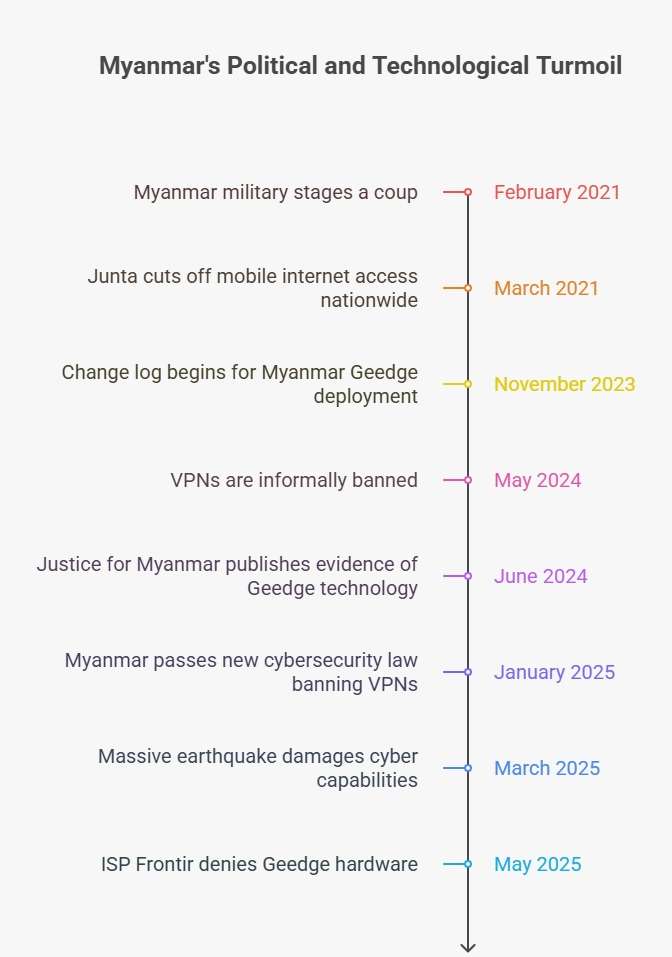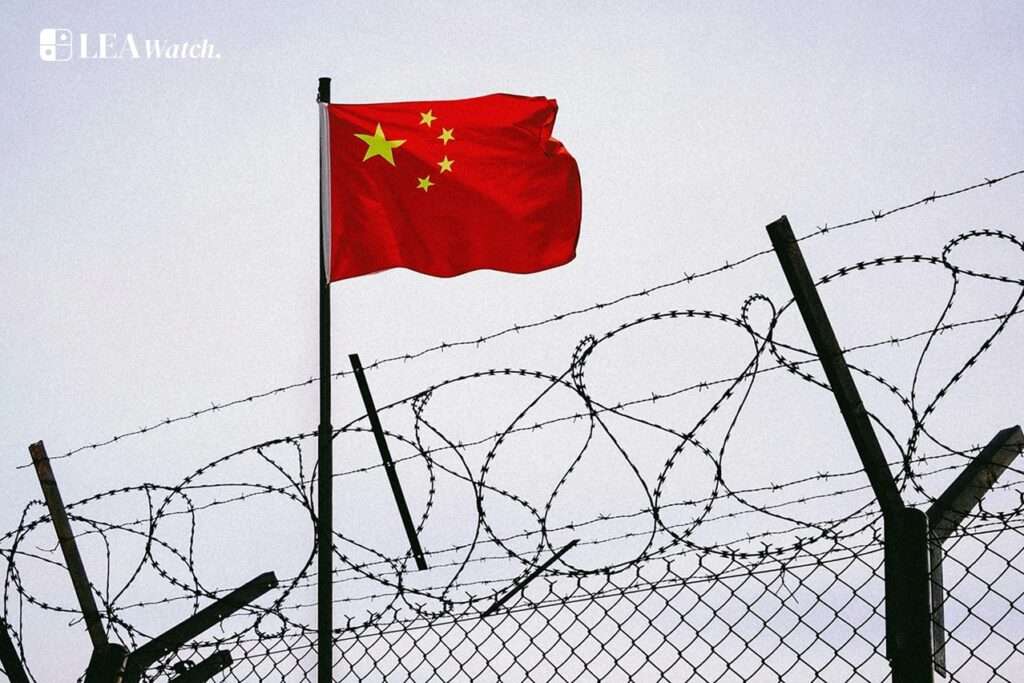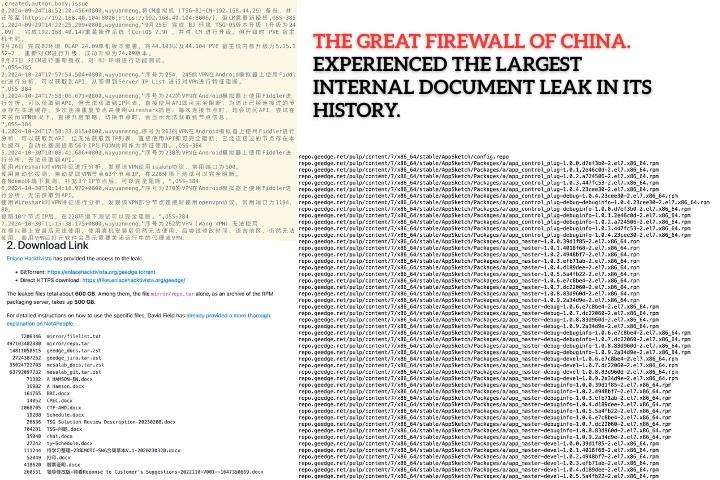An enormous data breach associated with Geedge Networks, a firm associated with the development and export of China’s Great Firewall (GFW), has exposed one of the most opaque censorship regimes in the world. The leak more than 500 GB of source code, design files and internal communications, according to reports not only reveals the technical operations of Beijing’s domestic surveillance apparatus but also demonstrates how China is actively exporting digital repression around the globe.
The disclosures strengthen a mounting sense of China as a country intent on promoting authoritarian ways of governing, diminishing free expression on the internet, and reforming international cyberspace governance to suit its authoritarian model.
Anatomy of the Data Leak
The leaked data illustrates the complexity of China’s censorship set of tools, including:
- Deep Packet Inspection (DPI) to inspect all internet traffic.
- The automatic blocking of VPNs, Tor, Psiphon, and other circumvention tools.
- Real-time tracking of individuals, including SIM card changes and geolocation.
- Construction of relationship graphs to identify dissident networks.
- Capacity for internet throttling and shutdowns at the national scale.
These expose not just surveillance but the deliberate weaponization of connectivity turning the internet into an instrument of state repression.
The Export of Repression
The leak shows that China is not confining this model to its borders. Instead, it is exporting censorship systems through firms like Geedge Networks and state-linked institutes such as the Institute of Information Engineering, Chinese Academy of Sciences.
Countries adopting Chinese systems include:
- Pakistan – Implemented the Web Monitoring System (WMS 2.0) and Lawful Intercept Management System (LIMS) to replace older Western firewalls.
- Myanmar- Set up surveillance infrastructure at telecommunications, Internet Service Provider gateways and data centers.
- Ethiopia and Kazakhstan – Adopted Chinese technology to suppress dissent and strengthen control of digital ecosystems.
In effect, this is a Digital Silk Road of Surveillance, in which governments can adopt an authoritarian internet structure developed in Beijing. 
Case Study: Myanmar – How China Empowered the Junta
After the Myanmar military junta took power in February 2021, they quickly began to make use of digital repression to suppress protests and opposition movements. The leak also revealed how important Chinese surveillance technology is in this crackdown:
- Network Visibility: Chinese systems afforded the junta visibility into the telecom network and the ability to surveil activist and journalists.
- Disabling Democratic Mobilization: The technology limited citizens’ ability to organize online and share information with the outside world by detecting users of VPNs and circumvention tools.
- Collecting Dissent: Chinese systems provided authorities the ability to track in real-time and social graph tools to identify, locate, and arrest prominent leaders of protests.
- Censorship by Demand: The junta used the Chinese systems to implement rolling Internet shutdowns to silence opposition during times of heightened protests.
In practical terms, China’s export of its Great Firewall technology facilitated the entrenchment of an illegitimate military regime while actively undermining the Myanmar people’s democratic desires.
Geopolitical Implications
The implications of the leak go far beyond technical details:
- China as a Exporter of Authoritarianism- Evidence indicates that Beijing is actively exporting censorship infrastructure to allied regimes in order to further solidify it’s role as the global facilitator of digital authoritarianism.
- Decline of Soft Power- Instead of projecting responsible state leadership, China is now invariably pictured as the state that profits from repression.
- Creation of Authoritarian Bloc- By peddling digital control systems, China is globally sewing dependencies of regimes and approaching an axis of censorship.
- Democratic Anxiety- For democracies, the leak affirms longstanding anxieties; China seeks to redesign the internet as a differentiated, set of compartmentalized and state-run spaces.
- Human Rights Costs- Each extradition deal has tangible impacts: journalists, activists, and movements are all deprived.
Conclusion
The Great Firewall leak is not merely an embarrassing data breach; it is a geopolitical indictment of China’s global ambitions. The disclosures demonstrate how Beijing’s surveillance approach is being replicated abroad, aiding authoritarian regimes from Islamabad to Naypyidaw. The assertion of “cyber sovereignty” that China advances is demonstrated to import repression, undermine freedom of expression, and turn connectivity against citizens. If this ongoing abuse is not curbed, we will soon see a world where the internet is less frequently a source of empowerment, and more frequently a source of control.
The leaked documents make one thing absolutely certain: China is not only building walls at home, but also digital jails at great distance.


